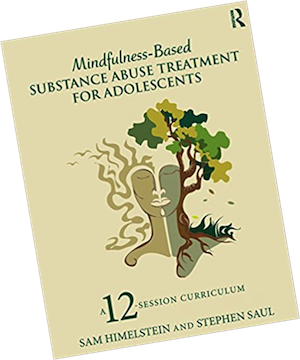Counseling for Struggling Teens and Their Families with Dr. Sam Himelstein
While not all adolescents struggle during this life stage, many do. They are in the midst of the transition to adulthood and want all the freedoms of being an adult but none of the responsibility. This often leaves parents or caregivers like you in the middle of an intense power struggle and concerned about the long term impact of high-risk behaviors like drug and alcohol use, angry and impulsive outbursts, and trouble with the law. And social media and the social stress that comes along with it doesn’t help.
You’re here because your teen might be struggling with
- drug and/or alcohol use (including but not limited to marijauna, alcohol, nicotine, prescription pills, acid/LSD, vaping, etc.)
- lying
- defiance and rebelliousness toward parents
- low academic motivation
- anger and emotional management
- trauma, depression, anxiety, ADHD, or other comorbid mental health related issues
- low self-esteem
- peer pressure
- And more!
Therapy for struggling teenagers often include 3 phases: 1) assessment, 2) treatment, and 3) follow-up
1) Assessment Phase: The first step in helping your child is for me to get an accurate picture of their life and worldview. I start with an initial assessment with only parents/caregivers and get a detailed history of the problem. This is also a time for me to coach parents/caregivers in how to get their adolescent to come to therapy if highly resistant. As part of the initial assessment (usually 1-3 sessions), I meet with parents/caregivers so that you can share your concerns, observations, and insights. You might feel like you’re at a breaking point with them but you still know them better than anyone else does. There’s also no one who has as big of an influence on your teen than you. That’s why parent/caregiver involvement in the assessment and treatment phases are extremely important. When appropriate, I will begin meeting with your teen with the initial goal of building an authentic relationship and seeing life through their eyes to gather as much information as possible.
2) Treatment Phase: From the assessment phase comes recommendations that will most help your teen and family. These may include but are not limited to:
- Parent coaching to develop and maintain developmentally appropriate boundaries
- Family counseling to strengthen trust and relationships
- Individual/group counseling to learn stress management/emotional regulation/anger management skills
- Individual/group counseling to learn the role drugs, anger, stress, etc. plays in their lives and learn how to effectively deal with friends/peers who may be engaging in the same behaviors, motivate them to take differing perspectives, etc.
Recommendations are individualized and are catered to your teen and family’s unique needs.
3) Follow-Up Phase: As your teen develops emotional awareness and regulation skills, becomes motivated to live without drugs, and as you implement and maintain parent coaching strategies from our work, we will inevitably discuss winding down treatment. The goal isn’t for your family to be in therapy indefinitely. It’s to get the tools you need to leave therapy. In this phase our meetings will decrease with an intention to maintain the work we’ve done.
Dr. Himelstein is an expert in helping youth develop mindful self-awareness
I’ve spent the larger part of my career helping youth who struggle with drugs, anger management, and related behavioral issues. One of the major “skills” I would help your teen develop is the ability to be self-aware and mindful. Self-awareness leads to better self-regulation and emotional/stress management, which is a core aspect of drug treatment that works for adolescents.
I have developed a nationally recognized 12-session evidenced-based curriculum to help substance abusing (and other issues) youth develop mindfulness and emotional regulation skills (pictured). The book is written for other professionals, however, you can learn more about it by clicking on the image.
I disseminate that curriculum either via group format (if we are currently running a group) or individual sessions and review material with you in our parent/caregiver sessions so that you can support your teen’s emotional development.
When you’re in the trenches and weathering the daily battles with your struggling teenager, it can be hard to imagine a way forward. Hope might feel out of reach. I know because I was that struggling teen, and my parents were those hopeless parents. But therapy can help, as long as you are able to commit to growing alongside your child.
Call me (Dr. Himelstein) directly for a free 15-minute consultation and to schedule an appointment.
Or, fill out the contact form below and I will be in touch with you as soon as possible.

